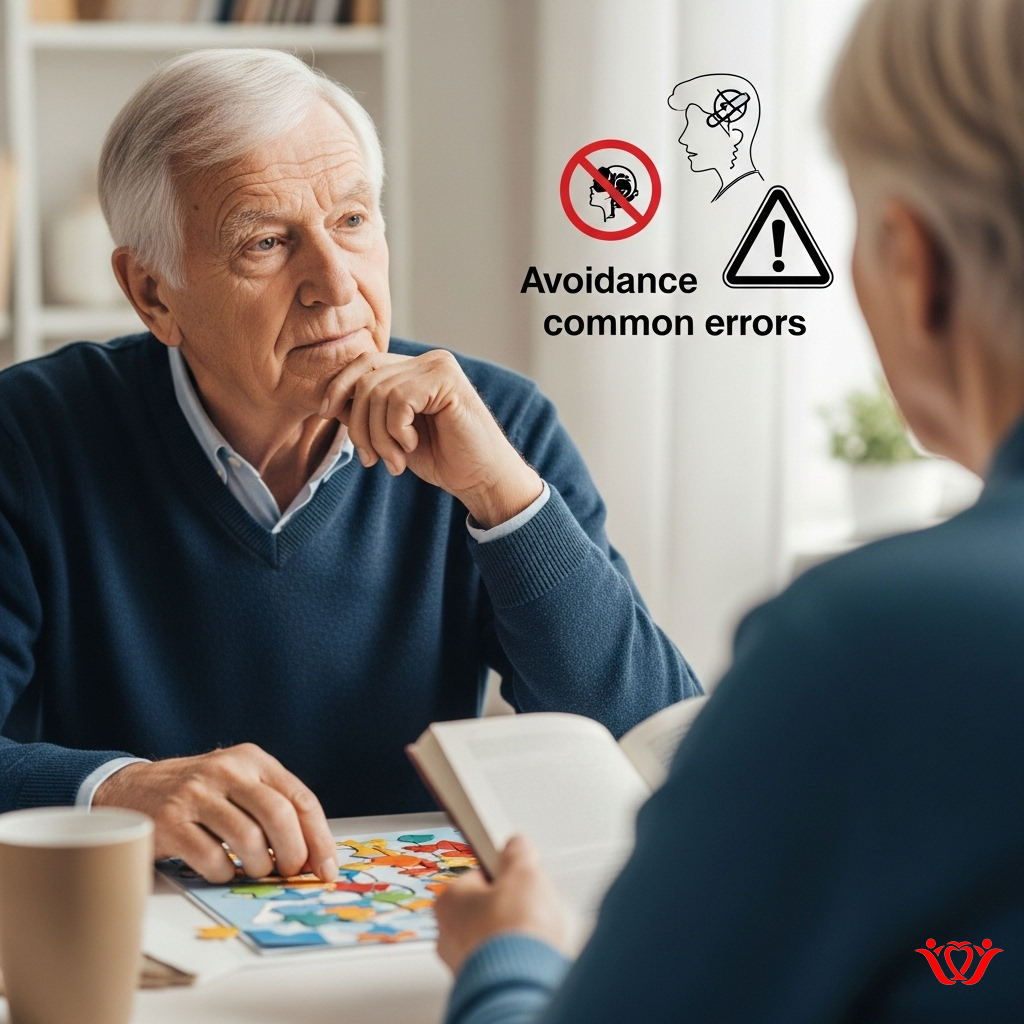Avoid These 7 Mental Health Mistakes for NJ Seniors’ Well-being

Safeguarding Emotional Health: Common Pitfalls for New Jersey Seniors and Their Families
As we navigate the later chapters of life, maintaining robust mental health becomes paramount. For seniors in New Jersey, the journey can present unique challenges, from adapting to physical changes to coping with evolving social circles. It’s common for individuals and families to overlook subtle signs or misunderstand the best approaches to senior mental well-being.
Understanding these potential missteps is the first step toward building a supportive environment that fosters emotional resilience and joy. This guide highlights seven common mental health mistakes that New Jersey seniors and their caregivers should strive to avoid, offering practical insights and local resources.
Mistake #1: Dismissing Changes as ‘Just Part of Aging’
Ignoring Early Warning Signs of Mental Health Conditions
One of the most frequent errors is attributing significant changes in mood, behavior, or cognitive function solely to the aging process. While some slowing down is natural, persistent sadness, withdrawal, loss of interest in hobbies, changes in sleep patterns, or sudden confusion are not normal parts of aging. These can be indicators of conditions like depression, anxiety, or even early-stage dementia.
In New Jersey, resources like the New Jersey Department of Human Services, Division of Mental Health and Addiction Services, offer support and information. It is vital to seek a professional evaluation if these symptoms appear. Early detection and intervention can significantly improve outcomes, allowing for effective management and better quality of life.
Mistake #2: Overlooking the Impact of Social Isolation and Loneliness
The Silent Epidemic Among New Jersey’s Elderly
Social isolation is a profound mental health risk for seniors, particularly in an increasingly digital world. Many New Jersey seniors, especially those in rural areas or those with mobility issues, may find themselves disconnected from their communities. Loneliness can lead to depression, anxiety, cognitive decline, and even physical health problems.
Encourage participation in local senior centers, community events, or volunteer opportunities. New Jersey has a wealth of senior programs, often coordinated through county offices on aging. For instance, the New Jersey Department of Human Services, Division of Aging Services, provides information on senior activity centers and social engagement programs throughout the state.
Mistake #3: Neglecting Physical Health’s Role in Mental Well-being
The Mind-Body Connection for NJ Seniors
The link between physical and mental health is undeniable, yet it’s often underestimated. Poor nutrition, lack of physical activity, unmanaged chronic conditions, and medication side effects can profoundly impact a senior’s mood and cognitive function. For example, uncontrolled diabetes or heart disease can increase the risk of depression.
Promoting regular, gentle exercise, such as walking in one of New Jersey’s many beautiful parks like Liberty State Park or local community trails, can significantly boost mood. Ensuring a balanced diet, regular check-ups, and thorough medication reviews by a healthcare provider are equally important. Many New Jersey hospitals and community health centers offer specialized geriatric care that considers this holistic view.
Mistake #4: Failing to Adapt to New Technologies
Missing Out on Connection and Convenience
In today’s interconnected world, avoiding new technologies can inadvertently lead to increased isolation and decreased access to information and services. While some seniors may feel intimidated by smartphones, tablets, or computers, these tools offer immense benefits for mental well-being, from video calls with grandchildren to online grocery delivery and virtual community groups.
Many New Jersey public libraries and senior centers offer free workshops and one-on-one assistance to help seniors learn basic technology skills. Encourage gradual adoption and focus on practical applications that enhance their lives, such as using FaceTime to connect with family members living out of state or accessing telehealth services from their homes.
Mistake #5: Underestimating the Power of Purpose and Engagement
The Need for Meaningful Activities in Later Life
As seniors transition from careers or active parenting, a sense of purpose can sometimes diminish. This lack of engagement can lead to feelings of emptiness, apathy, and contribute to mental decline. Maintaining a sense of purpose is a powerful antidote to these challenges.
Encourage seniors to continue old hobbies or discover new passions. This could involve volunteering at a local New Jersey charity, joining a book club, teaching a skill, or even taking a continuing education course at a local community college like Rowan College of South Jersey or Brookdale Community College. Meaningful activity fosters cognitive stimulation and a sense of contribution.
Mistake #6: Not Seeking Professional Help When Needed
The Stigma and Misunderstanding of Mental Healthcare
Despite increased awareness, a lingering stigma around mental health can prevent seniors and their families from seeking professional help. Some may believe that therapy is unnecessary, that their feelings are a personal failing, or that mental health services are only for severe conditions. This reluctance denies them access to effective treatments and support.
Mental health professionals, including therapists, psychiatrists, and social workers, are trained to provide compassionate and effective care. Many services are covered by Medicare and private insurance. New Jersey offers numerous mental health providers specializing in geriatric care. Your family doctor can provide referrals, or you can find licensed professionals through the New Jersey Primary Care Association or the National Alliance on Mental Illness (NAMI) New Jersey chapter.
Mistake #7: Neglecting Caregiver Well-being and Support
The Ripple Effect on Senior Mental Health
Adult children and other family members often serve as primary caregivers for New Jersey seniors. The immense responsibilities and emotional demands of caregiving can lead to significant stress, burnout, and mental health challenges for the caregivers themselves. When a caregiver is struggling, it inevitably impacts the quality of care and the senior’s overall well-being.
Caregivers must prioritize their own mental and physical health. This includes seeking respite care, joining caregiver support groups (many available through local county aging offices or hospitals in New Jersey), and not hesitating to ask for help from family, friends, or professional in-home care agencies. A well-supported caregiver can provide better, more consistent care, which directly benefits the senior’s mental health.
Fostering a Culture of Well-being for New Jersey Seniors
Avoiding these common mental health mistakes means adopting a proactive and empathetic approach. It involves open communication within families, regular check-ins with healthcare providers, and a willingness to adapt to new situations.
By understanding these pitfalls, New Jersey seniors, their adult children, and caregivers can work together to cultivate an environment where emotional well-being thrives. Our commitment to providing compassionate in-home care services in New Jersey includes supporting the holistic health of seniors, ensuring they live fulfilling lives with dignity and joy.



